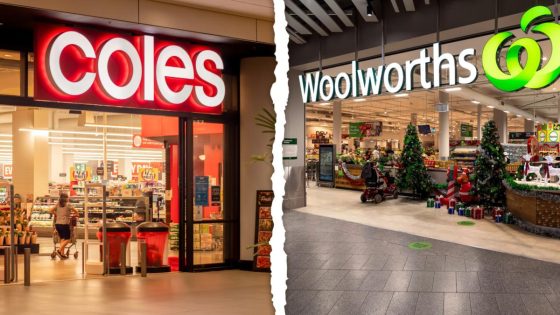The boss of WA’s biggest independent food distribution company believes the lack of supermarket competition is “absolutely” resulting in higher prices at the checkout — and especially delays in passing on falls in wholesale costs.
New West Foods managing director Damon Venoutsos has endured the rollercoaster of supply chain disruptions, labour shortages and extreme weather that placed a rocket under the price of thousands of household staples since the start of the COVID pandemic.
While some of those pressures have now eased, especially when it comes to imported goods, Mr Venoutsos said food inflation in some categories remained stubbornly high.
However, he added it was clear Coles and Woolworths had dragged their feet trimming prices for items where costs had fallen or levelled out.
Frozen vegetables, cooking oils, dairy products — especially cheeses — ham, bacon and eggs were among the items Mr Venoutsos singled out as having fallen in price much faster among food distributors than in supermarket aisles.
“I would absolutely say the pricing that the supermarkets have on certain items appears unreasonable when comparing them with food services pricing,” Mr Venoutsos said.
“That is purely due to market forces and competition — we have that and the supermarkets don’t. Just here in Perth there would be 30 other companies doing the same thing (New West Foods) does and nationally it would be in the hundreds.”
Earlier this month, Allan Fels — the former chair of the Australian Competition and Consumer Commission — released a report into price gouging that claimed supermarkets employed a “rockets and feathers” approach to pricing.
The report, which was commissioned by the Australian Council of Trade Unions, described the method as sharply increasing prices when costs rise — like a rocket — but dropping them slowly — like a feather — when inputs fall.
Mr Venoutsos said the exact opposite occurred in food distribution because of the level of competition.
“If we see any price decreases happening in our market, it’s a fight to see who can get their new price lists published and out quick enough to move the dial,” he said. “Whereas when we see price increases, it is everyone holding out to the last possible moment to pass those on.”
Since being hauled into the spotlight through a series of inquiries and investigations — and blistering rhetoric from Prime Minister Anthony Albanese on down — both Coles and Woolworths have slashed prices across a range of items.
“In my opinion, there were some significant price reductions being taken that even (the big supermarkets) would struggle to have negotiated (with their suppliers) so quickly,” Mr Venoutsos said. “To me it was actually a big admission.”
He added that two decades ago he supplied around $2 million worth of fresh seafood to a range of Action supermarkets but that the contract was “cut off immediately” when the stores in question were bought out by Woolworths.
“I have supplied into retail multiple times and every time have left the market due to the methodology of their business,” he said. “It is their world, their rules and if you don’t like it — pick up your bat and ball and go home.”
New West Foods’ clients now include Optus Stadium, King Edward Memorial and Sir Charles Gairdner hospitals, multiple aged care homes and hundreds of restaurants and cafes.
The food service industry nationally is valued at around $27 billion, a fraction of the $132 billion supermarket market.
While Coles and Woolworths account for around two thirds of the grocery market between them, Mr Venoutsos said the largest food distributor, Bidfood, accounted for only 10 to 15 per cent.
Source Agencies


